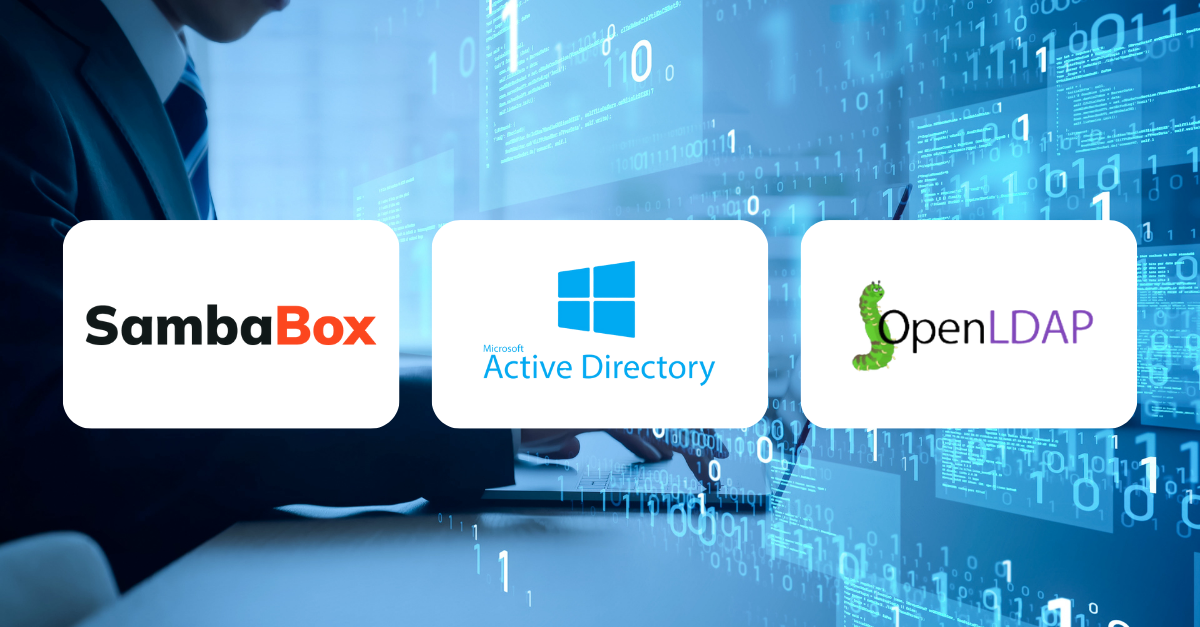As organizations strive to meet their evolving identity management needs, the choice between OpenLDAP, Active Directory, and the relatively newer entrant, SambaBox, becomes a pivotal decision. This article aims to provide an insightful comparison, exploring the strengths and weaknesses of each solution to assist businesses in making informed choices tailored to their unique requirements.

Open Source Flexibility
OpenLDAP, known for its open-source flexibility, enables seamless deployment across diverse operating systems. In contrast, SambaBox, leveraging the power of the open-source Samba4 infrastructure, takes a step further by incorporating enterprise-specific features. These features include secure API integrations, advanced audit logs, data reporting options, and centralized certificate management. While OpenLDAP excels in flexibility, SambaBox emerges as a strong contender with enhanced security and management capabilities, making it a formidable open-source directory solution.

Microsoft Integration
Active Directory’s strength lies in its seamless integration within the Microsoft ecosystem, offering a unified platform for user management. SambaBox, built on the Samba4 foundation, brings forth unique capabilities such as web-based management of over 3000 Group Policy Objects (GPOs) and Role-Based Access Control (RBAC). This not only streamlines administrative tasks but positions SambaBox as a robust open-source directory solution with Microsoft integration capabilities, providing an alternative for organizations seeking flexibility outside the Windows-centric environment.

Scalability and Enterprise Features
Both OpenLDAP and Active Directory are designed for scalability, but SambaBox stands out with features tailored for enterprise needs. SambaBox goes beyond directory management, incorporating domain services like DNS, DHCP, and orchestration. Noteworthy features include its ability to create and manage over 3000 GPOs via the web interface and the facilitation of Role-Based Access Control (RBAC). SambaBox positions itself as a comprehensive open-source solution, offering not just scalability but also critical features like advanced API integration, audit logs, data reporting, and certificate management, making it a robust choice for organizations with diverse and complex IT infrastructures.

In the realm of identity management, OpenLDAP, Active Directory, and SambaBox each bring unique strengths to the table. OpenLDAP excels in open-source flexibility, Active Directory in seamless Microsoft integration, and SambaBox emerges as a powerful contender with a feature-rich approach tailored for enterprise needs. Organizations must carefully evaluate these solutions based on their specific requirements, weighing factors such as platform compatibility, integration capabilities, and the need for advanced features, to make an informed decision aligned with their identity management objectives.







